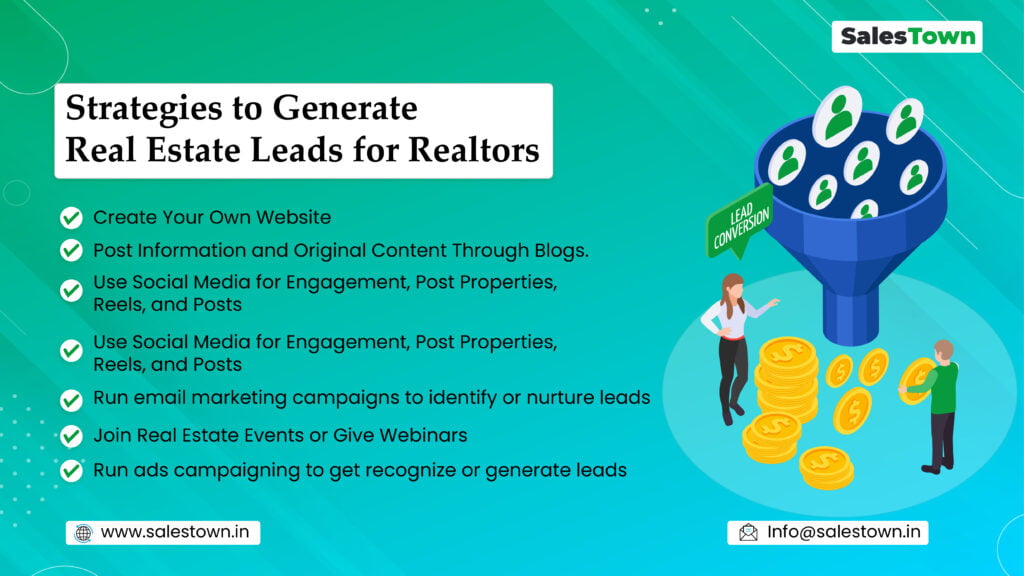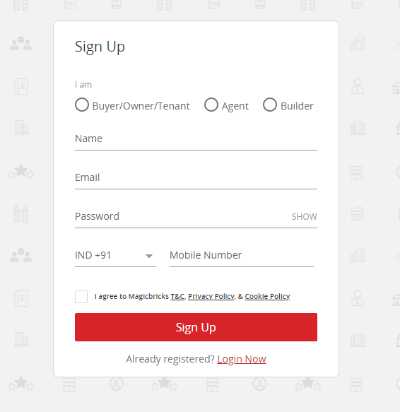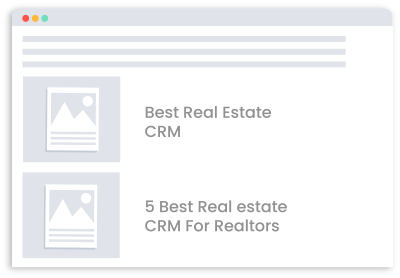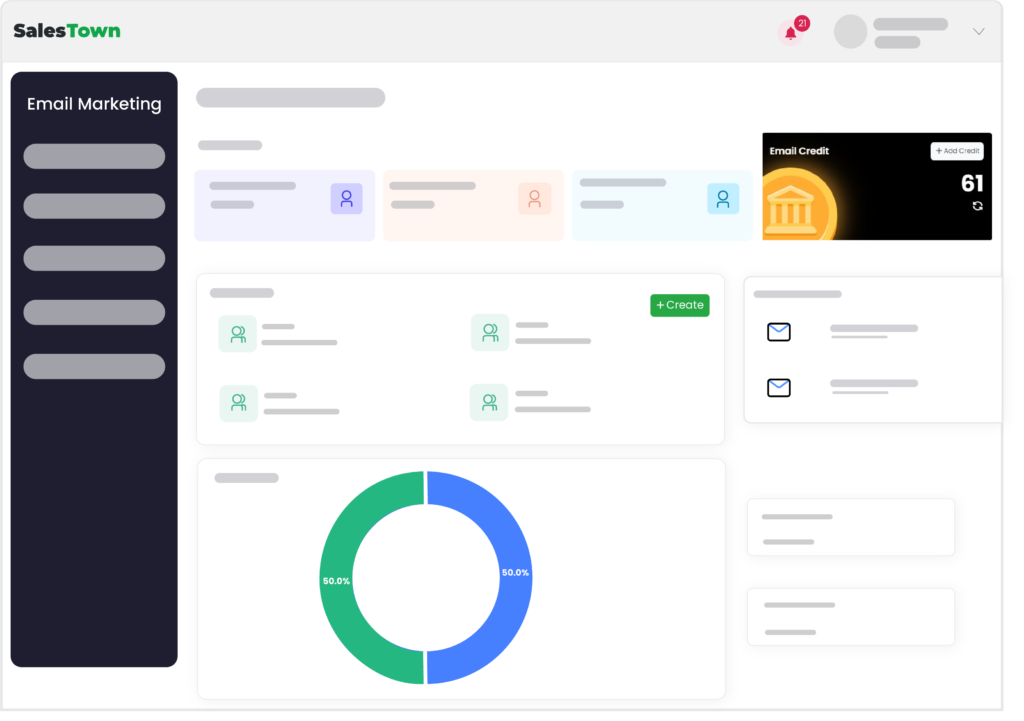How to Generate Real Estate Leads: 10 Best Proven Strategies

Are you a real estate professional struggling to find new clients? In today’s competitive market, generating quality leads is crucial for success in the real estate industry. Whether you’re a seasoned agent or just starting out, finding effective ways to attract potential buyers and sellers can be challenging.
Unlike other industries where customers make frequent purchases, real estate transactions are less common and involve significant decision-making. This makes lead generation in real estate a unique challenge that requires specialized strategies.
In this blog post, we’ll explore seven proven methods to help you generate real estate leads. We’ll cover both digital marketing techniques and traditional approaches, giving you a comprehensive toolkit to expand your client base.
From leveraging social media and content marketing to networking and community involvement, these strategies are designed to help you connect with the right prospects and grow your real estate business effectively. Let’s get started!
What is Lead Generation
First, you need to Understand What is Lead generation, it is the process of attracting and converting potential customers or clients into people who have shown interest in your product or service. Here’s a simple explanation:
Lead generation is about finding and engaging people who might want what you’re offering. It involves:
- Using various methods to get noticed by potential customers.
- Providing information or offers that make people curious about your product or service.
- Getting basic details like names and contact information from interested individuals.
- Creating a list of these potential customers (called “leads“).
- Staying in touch with these leads, nurturing their interest until they’re ready to buy.
The goal is to create a pipeline of potential customers for your business. It’s used in many industries, not just real estate, and can involve both online and offline tactics. In real estate, it helps agents and brokers connect with people who need their services.
10 Strategies Generate Real Estate Lead
Let’s explore ten powerful strategies to boost your real estate lead generation efforts:
1. Create Your Own Website
When starting a real estate business, establishing a strong digital presence is essential. In today’s digital world, your potential clients are searching online for real estate services, and having a website ensures that they can find you easily.

Design for User-Friendliness
The first step in building your online presence is creating a user-friendly website. Your website should be simple, attractive, and easy to navigate, accurately describing your business and listing all the services you offer. Include comprehensive contact details, such as your phone number, email, and physical address, to make it easy for potential clients to reach out.
SEO (Search Engine Optimization)
SEO helps your website show up higher in search engine results. You achieve this by:
- Using relevant keywords that potential clients might search for.
- Creating pages specific to locations you serve.
- Writing meta titles and descriptions that are informative and include keywords.
- Getting other reputable websites to link to yours.
Showcase Your Listings
Display your properties with attractive photos and detailed descriptions. This helps potential buyers or renters get excited about what you have to offer.
Feature Client Testimonials
Show reviews from past clients to build trust with new visitors. Positive feedback demonstrates your credibility and reliability.
Include Lead Capture Forms for lead generation

Your website should include a lead capture form where visitors can enter their name, contact details, and the type of property they are interested in. This allows you to collect valuable information from potential clients and follow up with them. For example, you can have a form that asks for the visitor’s name, email, phone number, and specific property needs.
“Salestown CRM makes collecting leads from your website a breeze. It connects to your existing web forms or lets you create new ones right in the CRM. When someone fills out a form on your site, their info zips straight into the CRM automatically. No manual work needed. This means you get leads in real-time, can follow up fast, and never lose a potential client’s details.”
Regularly Update Content
Keep your website fresh and informative by updating content regularly. This could include blog posts about real estate trends, local market updates, or tips for buyers and sellers.
2. Post Information and Original Content Through Blogs
Once your website is live, regularly update it with relevant blog posts. Writing about real estate trends, tips for buyers and sellers, and local market updates can help improve your site’s SEO. Blogs not only provide valuable information to your visitors but also help in improving your search engine rankings.Let’s break down why it’s so effective and how you can use it to generate more leads:
Why Blog?
- Shows your knowledge: Blogs let you demonstrate that you’re an expert in real estate.
- Help potential clients: By providing useful information, you build trust with readers.
- Improve your website’s SEO: Regular, quality content helps your site rank better in search results.
How to Make Your Real Estate Blog Successful:
Post Regularly Aim to publish new blog posts at least once a week. Consistency is key! It keeps your audience engaged and tells search engines that your site is active.
Choose Topics Your Audience Cares About Write about things that matter to potential home buyers or sellers. For example:
- “5 Tips for First-Time Home Buyers in [Your City]”
- “Understanding Property Taxes in [Your State]”
- “The Best Family-Friendly Neighbourhoods in [Your Area]”

Use Keyword Research Find out what real estate terms people are searching for in your area. Use tools like Google Keyword Planner to discover popular search terms. Then, naturally include these keywords in your blog posts.
Example: If you find that “affordable homes in [Your City]” is a popular search term, you could write a blog post titled “Guide to Finding Affordable Homes in [Your City]:”
Mix Up Your Content Types Keep things interesting by varying the types of posts you write:
- How-to guides: “How to Stage Your Home for a Quick Sale”
- Lists: “10 Must-Ask Questions Before Buying a Home”
- Market reports: “Quarterly Real Estate Market Update for [Your Area]”
- Personal insights: “Why I Love Helping First-Time Homebuyers”
Always Include a Call-to-Action (CTA) At the end of each post, tell readers what to do next. For instance: “Ready to start your home buying journey? Contact me for a free consultation!” or “Want more real estate tips? Sign up for our monthly newsletter!”
Share on Social Media Don’t just post and forget! Share your blog posts on your social media accounts. This helps more people see your content and can drive traffic back to your website.
3. Leverage Online Listings (99acres, Magicbricks, Housing.com, etc.)
It’s really important for new real estate agents to get noticed on websites like 99 Acres, Magicbricks, and Housing.com. These sites are where people go when they want to find a house to buy or rent. By signing up and listing your properties there, you can connect directly with potential buyers who are actively searching for homes.

These platforms are like big bridges that connect sellers (like you) with buyers. When you list your properties, people looking for houses in your area can easily find them. The folks visiting these websites are serious about buying or renting, so they’re not just browsing—they’re interested in making a deal.
Once you’re registered, you can add all the details about your properties: how many rooms, nice photos, and the price. This makes your listings attractive and helps buyers see if your property matches what they want.
But here’s the catch: getting leads is just the first step. You need to be quick to respond when someone shows interest. It’s a bit of work because you have to download the information about potential buyers and share it with your team. This ensures everyone follows up fast and gives personal attention to each lead.
By using these websites well, you can show off your properties to lots of potential buyers, build trust, and grow your real estate business even if you’re just starting out. It’s all about making connections and showing people why they should choose you to help them find their next home.
“But here’s the thing: once those leads start rolling in, how are you going to keep track of them all? Scribbling notes or using spreadsheets can get messy fast. That’s where Salestown CRM comes in handy. It automatically organizes your leads, reminds you to follow up, and helps you stay on top of your game. No more dropping the ball on hot leads or forgetting important details.”
4. Use Social Media for Engagement, Post Properties, Reels, and Posts
Using social media effectively for real estate can significantly boost your business. To establish a strong presence, you need to first figure out where your target audience spends their time online. Each platform has its own strengths: Facebook is great for reaching a broad audience and sharing detailed posts, while Instagram excels with visual content like photos and videos.

Creating Engaging Content Start by sharing content across all platforms to see where you get the most engagement. This helps you understand what resonates best with your audience. For example, Instagram and Facebook, focus on high-quality photos and videos of properties. Include informative captions that highlight key features and include a clear Call To Action (CTA) prompting viewers to contact you for more information.
Tailoring Your Approach As you gather data and insights, refine your strategy to focus on the platform that generates the most leads for you. If Instagram is bringing in more inquiries, invest more time in creating visually appealing posts and Stories that showcase properties effectively. On Facebook, leverage groups and pages to engage with local communities and share market insights.
Driving Engagement Engagement is key on social media. Respond promptly to comments and messages to build trust and rapport with potential clients. Use features like Instagram Stories to give behind-the-scenes glimpses of properties or share client testimonials to build credibility.
5. Run email marketing campaigns to identify or nurture leads
Running email marketing campaigns to find and nurture leads in real estate involves strategically using emails to attract potential clients and guide them through the buying or selling process. To find leads, you’ll collect email addresses through your website, social media, and other channels. Once you have these contacts, nurturing begins by sending personalized and informative content For instance, you can provide market insights, property listings that match their preferences, tips on home buying or selling, and success stories from previous clients.

Segmenting your email list based on factors like buying/selling timelines, location preferences, and specific interests allows you to personalize your communication effectively. This ensures that each lead receives information that is relevant to their situation, increasing the likelihood of engagement and conversion.
👉 Read more: Benefits of email marketing
“But now you might be thinking, “Do I need to find another tool for email marketing?” Hold up – remember we talked about Salestown CRM? This is all you need. Salestown CRM isn’t just for organizing leads. But also has Email Marketing capabilities. It lets you create and send personalized emails, build targeted lists from your existing contacts, and track how well your campaigns are doing. All in one place without switching different Apps or Software. Isn’t it a great thing?”
6. Join Real Estate Events or Give Webinars
Participating in real estate events or hosting your own webinars can significantly boost your visibility and credibility in the industry. These platforms allow you to showcase your expertise, network with peers, and connect directly with potential clients.
Attend local real estate expos, conferences, or networking events. Prepare an elevator pitch and bring plenty of business cards. Follow up with the connections you make promptly after the event.

Consider giving presentations or hosting workshops at these events. Topics could range from first-time home-buying tips to investment strategies in the local market.
Webinars are an excellent way to reach a wider audience without geographical limitations. Host online sessions on topics relevant to your target clientele. Use these webinars to provide value, demonstrate your expertise, and collect contact information from attendees for follow-up.
7. Run ads campaigning to get recognized or generate leads
By running ads on platforms like Google, Facebook, and Instagram. Especially in the beginning, relying solely on organic leads can take time, whereas ads can quickly connect you with potential customers who are actively searching or browsing.

So, what exactly are ads?
Ads on platforms such as Google, Facebook, and Instagram allow you to promote your real estate offerings by paying to display targeted messages to your audience. These ads appear in search results, news feeds, and other places where your potential clients spend their time online.
Let’s break down the importance of ads on each platform:
Google Ads: Google is where people go when they want to find something, including real estate. To ensure your business appears at the top of search results when potential buyers search for terms like “flats in Delhi” or “property for sale,” you need to use Google Ads effectively.
Facebook and Instagram Ads (Meta Ads Manager): Social media platforms like Facebook and Instagram are where people connect with friends and discover content they love. To capture their attention with real estate ads, you need a compelling approach:
Running ads across various platforms is crucial because it maximizes your reach and helps you discover which platforms work best for your business. Each platform attracts different types of users with unique behaviors and interests. By targeting multiple platforms, you increase your chances of connecting with potential leads.
Key Strategy: Understand the interests and behaviors of your target audience on each platform. Tailor your ad content to resonate with these interests. For instance:
- Use Google Ads to target people actively searching for properties.
- Use Facebook and Instagram to showcase visually appealing properties and engage potential clients through compelling visuals and CTAs.
Running ads on Google and Facebook is great for getting leads.But what do you do with all those leads once they start coming in? Copying and pasting them into spreadsheets? You know it’s easy to mess up or lose some valuable leads along the way. Don’t worry, I have a solution!
Remember Salestown CRM? It grabs those leads automatically as soon as someone clicks on your ad and fills out a form. No more manual work for you! But it doesn’t stop there. The CRM puts all your leads in one spot,It can even send out a quick” Welcome” message to new leads right away. And if you’ve got a Sales team, it can distribute leads to your team ensuring everyone gets their fair share. Plus, you can set follow ups & reminders for upcoming meetings or calls. SalesTown CRM is all about making your life easier and making sure you don’t miss out on any potential clients.
8. Leverage Old Marketing Strategies (Billboard, Banners, Posters)

While digital marketing is essential, combining it with traditional strategies like billboards and posters creates a comprehensive marketing approach. This integration ensures your brand reaches audiences both online and offline. This can increase your visibility in specific neighborhoods or high-traffic areas.
Billboards, banners, and posters are physical signs that people see as they go about their day. Whether driving down the highway or walking through a busy street, these visuals catch attention and create brand awareness.
Use these traditional methods to complement your online strategies. For example, include QR codes on your physical ads that lead to your website or a landing page with a special offer. Seeing your brand on billboards or posters repeatedly reinforces your presence in people’s minds. This can enhance brand recall when they later encounter your business online or in other contexts.
Remember to track the effectiveness of these traditional methods. You could use unique phone numbers or landing pages for each campaign to measure their impact on lead generation.
9. Enhance Your Local Partnerships with Broker Agents

Partnering with broker agents can greatly benefit your real estate business. These agents are local experts who know the neighborhoods, property trends, and the people looking to buy or sell homes. When you collaborate with them, you gain access to their knowledge and connections, which can help you find new clients and opportunities.
Working with broker agents allows you to reach more areas and specific groups within your local market. They often have clients who are interested in particular types of homes or neighborhoods that you specialize in. This expands your potential client base and increases your chances of closing deals.
Building partnerships with broker agents also means you can exchange referrals. If they have clients who need services or properties different from what they offer, they can recommend you, and you can do the same for them. This mutual support helps both of you grow your businesses by reaching more clients.
Moreover, partnering with broker agents often involves getting involved in local community events. This not only boosts your visibility but also shows potential clients that you care about the community. It builds trust and goodwill, making people more likely to choose you for their real estate needs.
By leveraging each other’s strengths and networks, you can create a powerful synergy that benefits both your businesses in the dynamic real estate market.
10. Cold Calling Still Helps

While often considered old-fashioned, cold calling can still be an effective lead generation technique when done correctly. It allows you to reach out directly to potential clients and start a conversation.
Develop a targeted list of prospects, such as FSBOs (For Sale By Owner) listings or expired listings. Research these prospects before calling to personalize your approach.
Script your calls, but keep them conversational. Focus on providing value and understanding the prospect’s needs rather than pushing for an immediate sale.
Be prepared for rejection and don’t take it personally. Keep track of your calls and follow up with interested prospects at appropriate intervals.
Maximize Your Real Estate Lead Generation with SalesTown CRM
As we’ve explored in this comprehensive guide, generating quality leads is crucial for success in the competitive real estate industry. From creating a website and leveraging social media to attending local events and utilizing traditional marketing methods, there are numerous strategies at your disposal to attract potential clients.
However, generating leads is only half the battle. To truly capitalize on your lead generation efforts, you need a real estate lead management software to manage and nurture these leads. This is where SalesTown CRM Software comes into play, offering a solution for real estate professionals.
SalesTown the Best Real Estate CRM provides a centralized platform to track, manage, and nurture your leads throughout their journey. By automating follow-up processes, organizing client information, and providing insights into your sales pipeline, SalesTown CRM ensures that no opportunity slips through the cracks.
With SalesTown CRM, you can:
- Seamlessly integrate leads from various sources like (website, social media, 99 acres, magic bricks, housing. com,justdial, IndiaMART, etc) into one platform
- Automate lead distribution, follow-ups & reminder
- Track each lead’s progress through sales pipeline
- Create and manage custom workflows for different types of leads (e.g., buyers, sellers, investors)
- Schedule and manage appointments effortlessly
- Create and manage personalized email marketing campaigns within SalesTown
- Generate detailed reports on lead sources, conversion rates, and team performance
👉 Read Also: How to manage Real Estate leads
By leveraging SalesTown CRM alongside your chosen lead generation strategies, you can create a powerful, streamlined approach to growing your real estate business. Don’t let your hard-earned leads go to waste – empower your lead generation efforts with SalesTown CRM and stand out in today’s competitive real estate market.
Book a free demo to learn more.
Remember, in real estate, building relationships is key. With SalesTown CRM, you have the tools to nurture these relationships effectively, turning leads into satisfied clients and long-term success for your business.
FAQs on Generating Real Estate Leads
Q 1. What are real estate leads?
Answer: Real estate leads are potential clients who have shown interest in buying, selling, or renting properties. These leads can come from various sources such as online inquiries, referrals, open houses, and marketing campaigns.
Q 2. What role does a website play in lead generation?
Answer: A professional and user-friendly website serves as the hub for all your online activities. It should include detailed property listings, contact forms, informative content, and a blog to attract visitors and convert them into leads. Integrating lead capture Toolsand ensuring the site is optimized for mobile use are also essential.
Q 3. How important is SEO for generating real estate leads?
Answer: SEO is critical for improving your website’s visibility on search engines like Google. By optimizing your site for relevant keywords, creating high-quality content, and earning backlinks, you can attract organic traffic from people searching for real estate services in your area.
Q 4. Best way to get leads in real estate?
Answer: To generate real estate leads, leverage social media marketing, optimize your website for SEO, and run targeted ads. Build a strong network through referrals and attend local events. Offer valuable content like property guides and virtual tours to attract potential buyers and sellers.
